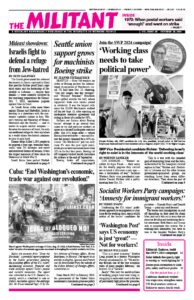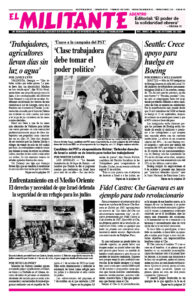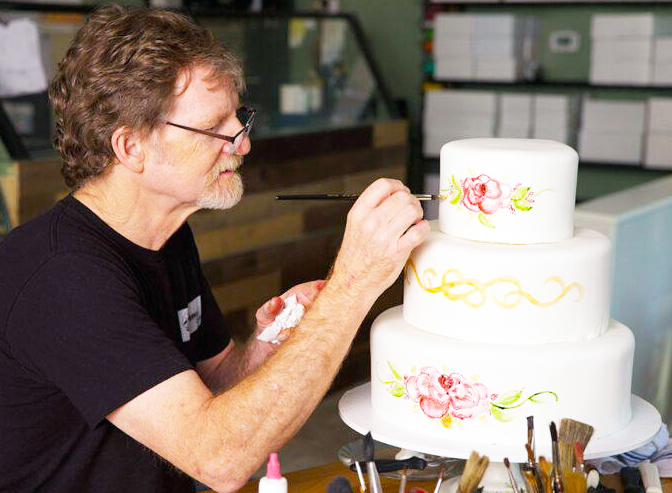When the Colorado Supreme Court dismissed the third harassment lawsuit filed against him Oct. 8, Jack Phillips, the owner of the Masterpiece Cakeshop in Lakewood, felt vindicated after 12 years of defending his right to refuse to design cakes with messages that ran counter to his religious convictions. The decision is an important victory for the First Amendment right to freedom of speech and freedom of worship.
But there is no guarantee that aggressive “woke” advocates determined to use the courts to try and impose their views and morality on everyone else will back off their harassment of Phillips.
A devout Christian as well as a cake decorating artist, Phillips first became a target of harassment in 2012 when he refused to design a wedding cake for Charlie Craig and David Mullins, a gay couple.
“I’ll make your birthday cakes, shower cakes, sell you cookies and brownies,” Phillips had politely told them. “I just don’t make cakes for same sex weddings.” That, he explained, goes against his religious beliefs. He doesn’t want to be seen as endorsing gay marriage.
Phillips has also refused to design cakes with messages that demean gay people, express racism, celebrate Halloween or Satan, or promote use of marijuana.
Nonetheless, the American Civil Liberties Union filed a complaint on behalf of the couple with the Colorado Civil Rights Commission, alleging Phillips had discriminated against them on the basis of sexual orientation. The commission pushed aside Phillips’ constitutional rights, backed the couple, and threatened to take action against Phillips if he continued to refuse to make cakes for gay weddings.
Phillips appealed all the way to the U.S. Supreme Court, where he won in a 7-2 decision in June 2018. But the court ruling didn’t clearly address Phillips’ right to free speech. It ruled he wasn’t given “neutral and respectful consideration” of his religious beliefs.
The court noted that the commission on at least three other occasions ruled that bakers who refused to create cakes with messages against gay marriage had acted lawfully because the words were “derogatory.”
One commissioner had attacked religious views more broadly. Freedom of religion “has been used to justify all kinds of discrimination through out history, whether it be slavery, whether it be the holocaust. … To me it is one of the most despicable pieces of rhetoric that people can use to — to use their religion to hurt others.” Not one of the other commission members answered this broadside attack.
Harassment of Phillips
Even before the U.S. Supreme Court ruled, lawyer Autumn Scardina contacted Masterpiece and asked Phillips to bake a custom cake — blue on the outside, pink on the inside — to celebrate the seventh anniversary of Scardina’s gender “transition.” Phillips declined. Later Scardina requested a cake depicting Satan smoking marijuana, which Phillips also wouldn’t make. Scardina then filed a complaint with the commission.
Just weeks after the 2018 U.S. Supreme Court decision, the commission ruled that Phillips had discriminated against Scardina on the basis of gender identity. But after Phillips sued, and more instances of the anti-religion biases of the commission came to light, it dropped the case against him in March 2019.
Scardina then filed a lawsuit against Phillips in June 2019. At first a state court ruled against the baker, imposing a $500 fine for allegedly violating the Colorado Anti-Discrimination Act. That’s the case the Colorado Supreme Court dismissed Oct. 8, in a narrow ruling holding Scardina had not filed the suit properly.
The American Bar Association also intervened in the dispute, claiming the issue is whether “a business’s freedom to choose its customers” is “more important than the government interest in stopping sexual orientation discrimination.”
But that’s simply false. Phillips was exercising his right to consider his religious beliefs in deciding what cakes he makes, not based on who was ordering them, but on what the cakes would say.
The U.S. Supreme Court took this up in a June 2023 decision in a related case. It ruled that state agencies cannot use the Colorado Anti-Discrimination Act to force businesses such as graphic designers to create messages they don’t agree with because this violates the “Free Speech Clause of the First Amendment.”
Graphic designer Lorie Smith had filed the suit. Both sides stipulated to the facts in the case, including that Smith is “willing to work with all people regardless of classifications such as race, creed, sexual orientation, and gender.” She, however, will not produce content that “contradicts” what she views as “biblical truth.”
This ruling supports Phillips’ position. He told USA Today after his Oct. 8 victory, “These rights not only protect me, but they protect the people who are suing me. And they’re worth fighting for because if I lose my rights, we all lose these rights.”


